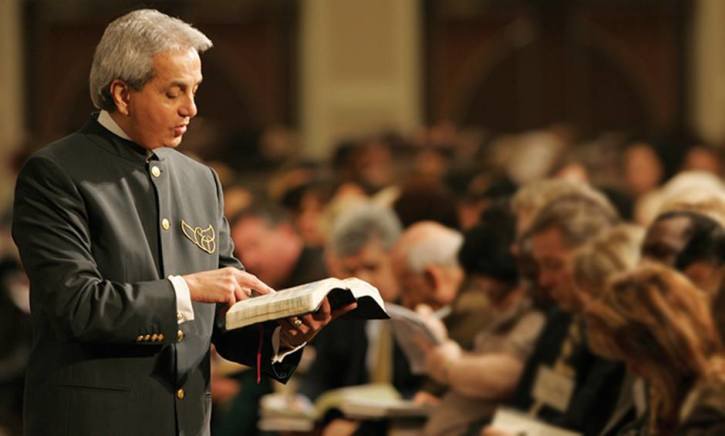The Baptism of Jesus is a serious deal to the Gospel writers. And for Mark it is one of three events where a voice speaks from heaven declaring Jesus to be the beloved Son with whom God is well pleased. Mark loads it with meaning, putting upon Elijah imagery evocative of Malachi, Isaiah, and Elijah. The baptism in the Jordan is reminiscent of the crossing of the Red Sea by Moses and the entering of the Promised Land by Joshua.
Mark’s Gospel begins with the Baptism. It is where the anointing occurs, where the Spirit defends, where the heavens are opened. Only after this, and a time of preparation, does Jesus begin his ministry. This isn’t a throw away passage, it is the decisive moment where Jesus begins his vocation as the Messiah. Every Gospel records it. For Mark’s Gospel, it is the beginning. There are no shepherds, magi, or angels.
Why start here? What is the significance? How does this frame Jesus’ entire ministry?
John’s ministry of baptism took place outside of the establishment. It was, to use Hakim Bey’s language, a temporary autonomous zone. John’s encampment by the Jordan was filled with folks wanting a break from the old, and an entrance to the new. To paraphrase the IWW, it offered a new society within the shell of the old. And Jesus came because, at the very least, he wanted the old to pass away, and the new to come.
By accepting baptism at the hands of John, Jesus recognized that this baptism was the divinely appointed means of passage from the sinful Israel to the new Israel of God’s promise. And this holy and autonomous moment was signaled by a tearing open of the heavens (the symbolic barrier between humanity and God), the coming of the Spirit as a dove, and the speaking of the Voice of God.
We are never told that this apocalyptic moment, this great unveiling (one of three in Mark—the others are the Transfiguration and the Crucifixion) is experienced by anyone other than Jesus. All of this weight. All of this expectation. The hope of the people. A light for the nations. A holy calling. God among us. In this apocalyptic moment, it just looked to any passerby like a dusty Palestinian getting a bath.
One set of eyes sees nothing. Another can see the opening of the heavens and the new thing of God.
To anyone with common sense, the radical Christian movement is a small and insignificant group of people. We are largely irrelevant to those with power. We are, by most reckonings, an impotent group of people with some interesting ideas but not much else.
But what does Jesus see when he looks at us? What can we see? Are the heavens ripped open? Is the Spirit upon us?
I suspect Jesus would answer: “Yes.”
May we listen to the Voice of God and go build the new society within the shell of the old.












